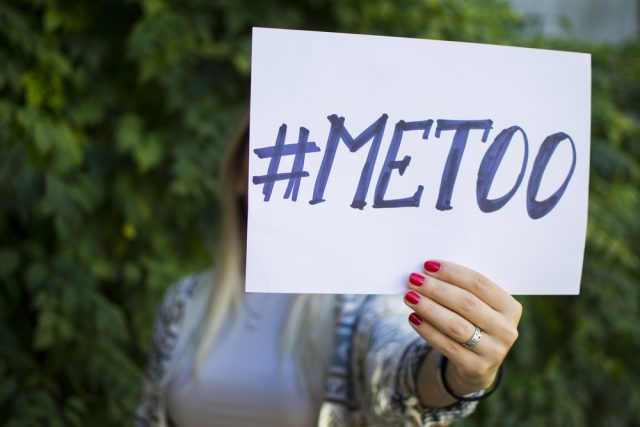 #MeToo just got quite a boost from all 56 state and territory attorneys general. The group of all our AGs sent a letter to Congress this week urging the enactment of legislation that would make mandatory arbitration clauses a thing of the past when it comes to workplace sexual harassment. This is big. This change would see #MeToo transcend a media movement and truly prioritize victims of workplace sexual harassment in a meaningful and concrete manner.
#MeToo just got quite a boost from all 56 state and territory attorneys general. The group of all our AGs sent a letter to Congress this week urging the enactment of legislation that would make mandatory arbitration clauses a thing of the past when it comes to workplace sexual harassment. This is big. This change would see #MeToo transcend a media movement and truly prioritize victims of workplace sexual harassment in a meaningful and concrete manner.
Here’s the current situation: people sign employment contracts when they start their jobs. Nestled between their description of insurance benefits and their dress codes is often a clause that says sexual harassment claims must be resolved through arbitration instead of through the regular court system. The clauses, most of which are presented as non-negotiable, are often ignored by employees, who are signing these contracts before they even begin work – well before any sexual harassment in that workplace is even anticipated. Later, when those employees find themselves working alongside a Harvey Weinstein or Matt Lauer, they consult their attorneys only to learn that they’ve unwittingly given up their right to use the justice system to seek recompense from their harassers.
Arbitration clauses are common in employment contracts – and are by no means universally bad; arbitration often provides a faster and cheaper way for an employer and employee to settle a dispute. But workplace sexual harassment isn’t a “dispute” as much as it’s “victimization.” As a society, we would never tolerate the victim of a theft or an assault being prevented from seeking justice in a real court with a real judge and real jury. Any policy to mandate arbitration for sexual harassment sends a clear message: that sexual harassment is more like an argument between equals than it is wrongdoing by a perpetrator against a victim. It shouldn’t have taken #MeToo to call this into focus, but at least we’re making some progress.
Mandatory arbitration isn’t just problematic because the mechanics of the proceedings might be sub-standard or inconsistent; it’s also a problem because of the silence factor. Today, many employers require their employees to promise both to submit to arbitration, and also to keep the details eternally secret. Such a rule can make good sense in a standard employment-law context; employers might find themselves drowning in litigation if details of every settlement became public. Again, though, sexual harassment is different. For every woman who is humiliated, pressured, or demeaned, there are ten others who may be next. Demanding secrecy based on a clause in an employment contract risks people’s personal safety – and that is about as far from good public policy as it gets.
While it appears that all the attorneys general agree on this issue, the employment law community is likely not of one mind. The mechanics of arbitration may be preferable to some victims seeking compensation. Law & Crime spoke with attorney William Healey, an employment and sexual harassment specialist. Mr. Healey was concerned:
The non-public nature of arbitration does not only benefit an employer, but on some occasions, also the claimant. There are situations where claimants prefer to pursue their sexual harassment claims in arbitration instead of a potentially public trial. For that reason, the proposed legislation seems shortsighted and not designed to help all intended beneficiaries. In addition, with all of the exceedingly pro-employee statutes and standards governing sexual harassment, it is difficult to understand why claimants need even more statutory protection. They don’t.
The bipartisan coalition of attorneys general follows the lead of Microsoft, which decided to eliminate forced arbitration last December. At that time, Brad Smith, Microsoft’s president and chief legal officer told the New York Times, “The silencing of people’s voices has clearly had an impact in perpetuating sexual harassment.”
Today’s demand letter is a follow-up to legislation introduced last December by a bipartisan group of legislators led by Sen. Gillibrand, Kirsten E. [D-NY].
The Ending Forced Arbitration of Sexual Harassment Act provides:
no predispute arbitration agreement shall be valid or enforceable if it requires arbitration of a sex discrimination dispute.
That bill has been read by the Senate and referred to the Committee on Health, Education, Labor, and Pensions. Whether Congress will enact the proposed legislation, or adopt other laws about mandatory arbitration clauses remains to be seen. Law & Crime will keep you posted as this all progresses.
Follow Elura on Twitter @elurananos
[Image via [Mihai Surdu/Shutterstock]
This is an opinion piece. The views expressed in this article are those of just the author.